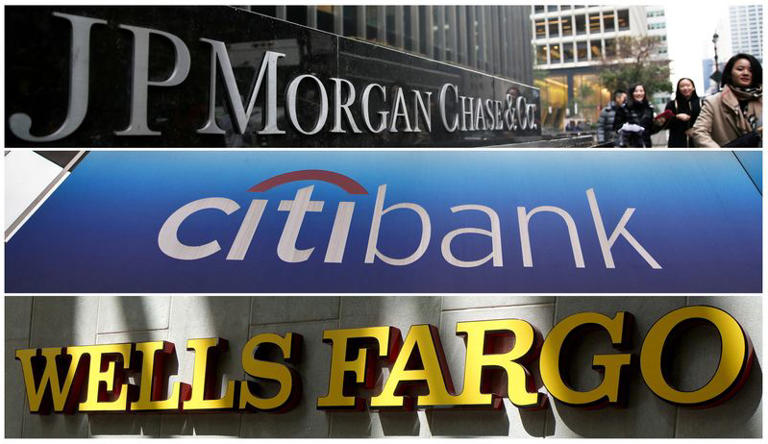Wall Street banks kicked off the second-quarter earnings season on Friday by reporting a healthier pipeline for deals and a notable increase in investment banking activity. However, they also cited some headwinds and reasons for caution. The results from three major U.S. banks highlighted the mixed sentiment prevailing in the financial sector.
Investment Banking Revenues Surge
Investment banking revenues showed significant improvement across the board. Citigroup reported a 60% jump in investment banking revenue, bringing in $853 million. This substantial increase was echoed by JPMorgan, which saw its investment banking fees grow by 50%, surpassing the company’s earlier prediction of a 25% to 30% increase. Wells Fargo also reported a notable rise, with investment banking revenue surging 38% to $430 million. This increase in activity reflects a broader industry trend of recovery from the pandemic-induced drought in deal-making.
Mixed Reactions from the Stock Market
Despite these positive earnings reports, the stock market’s reaction was mixed. Wells Fargo shares dropped 6% at midday on Friday after the bank missed analysts’ estimates for interest income. Citigroup shares fell 1.5%, with investors expressing concerns about expenses and market share. Meanwhile, JPMorgan shares were down 0.3%, as there were worries about costs and provisions. These mixed reactions underscore the cautious optimism that investors are maintaining in the face of various economic uncertainties.
Strong Deal Pipeline
Citigroup’s Chief Financial Officer, Mark Mason, highlighted a strong pipeline of announced deals, which he expects to play out towards the end of the year and into 2025. He pointed out several factors that could influence this outlook, including the broader regulatory environment, upcoming elections, and the evolving rate and inflation landscape. “There are a number of factors that come into play,” Mason said. “But the important thing is we are well positioned as we look at announced deals.” He expressed confidence in Citigroup’s momentum in the market.
Economic and Political Factors
The U.S. is heading toward the November 5 presidential election, which adds another layer of uncertainty. Additionally, the interest rate cycle could significantly impact financial outlooks. JPMorgan’s CFO, Jeremy Barnum, noted that while dialogue on mergers and acquisitions (M&A) was robust, actual deals were still muted. He also mentioned that initial public offerings (IPOs) could have been expected to be higher, but equity market strength has been primarily driven by a few stocks, with other areas like mid-cap technology being more subdued.
Broader Market Trends
Wells Fargo’s CFO, Mike Santomassimo, reported good activity across the investment grade desk, capital markets, and leverage finance business. A report from credit rating agency Moody’s earlier in the week suggested that U.S. banks were expected to show significant improvements in some investment banking revenue sources, due to industry improvements in debt issuance and M&A, even though IPOs were slightly lower than the previous year.
Upcoming Reports from Goldman Sachs and Morgan Stanley
Looking ahead, investment banks Goldman Sachs and Morgan Stanley are set to report their quarterly results next week. Goldman’s earnings are expected to more than double compared to the second quarter of 2023, largely due to a revival in deal activity and fewer writedowns for its consumer business. Morgan Stanley’s earnings per share (EPS) are projected to climb 33%, buoyed by rising activity in mergers, acquisitions, and capital markets.
Conclusion
The promising outlook for the investment banking sector highlights the ongoing recovery and growth in deal-making and capital market activities. However, banks are navigating broader economic and regulatory challenges that keep investors cautious. The mixed reactions from the stock market to the earnings reports underscore the complex and evolving financial landscape as banks balance optimism with prudent risk management.
